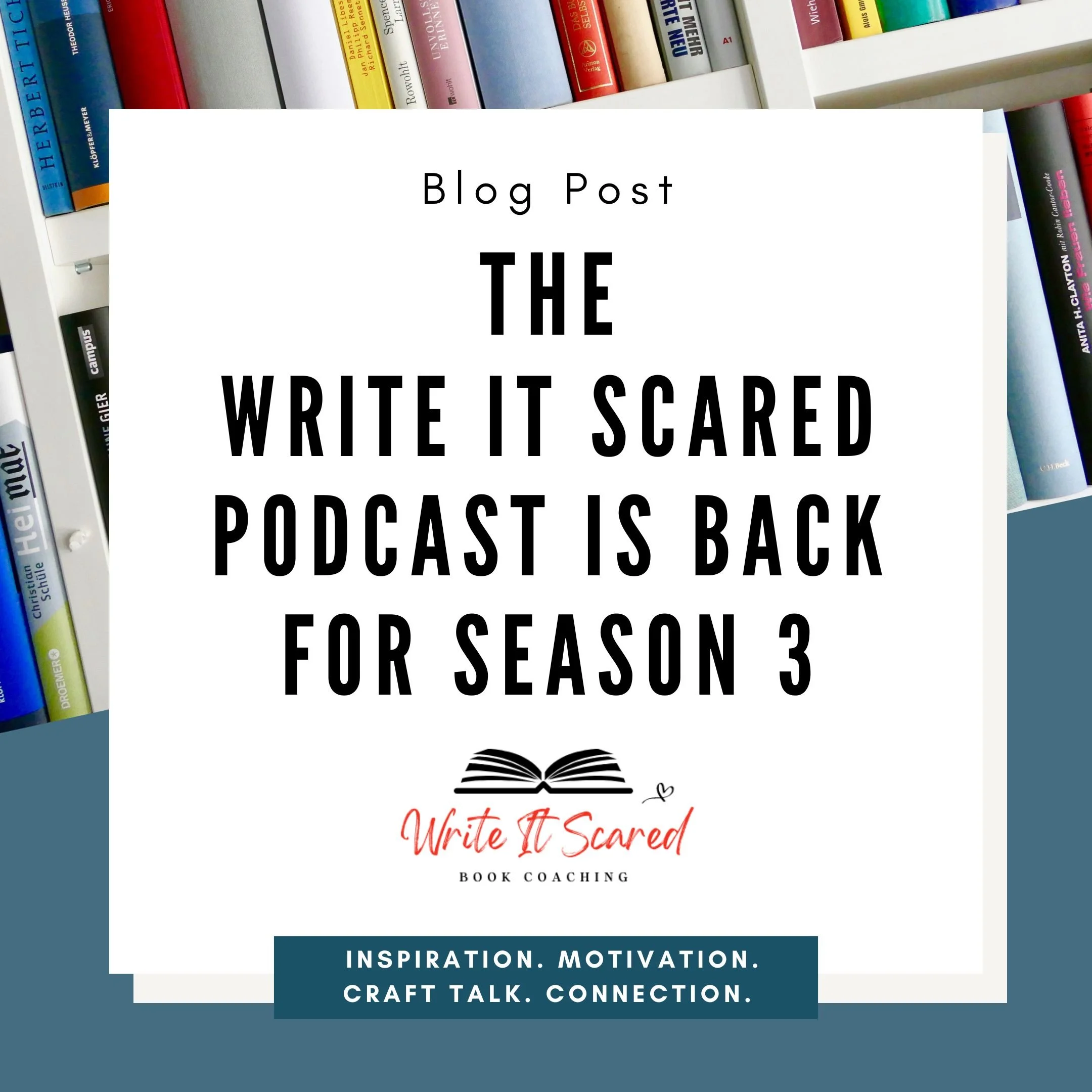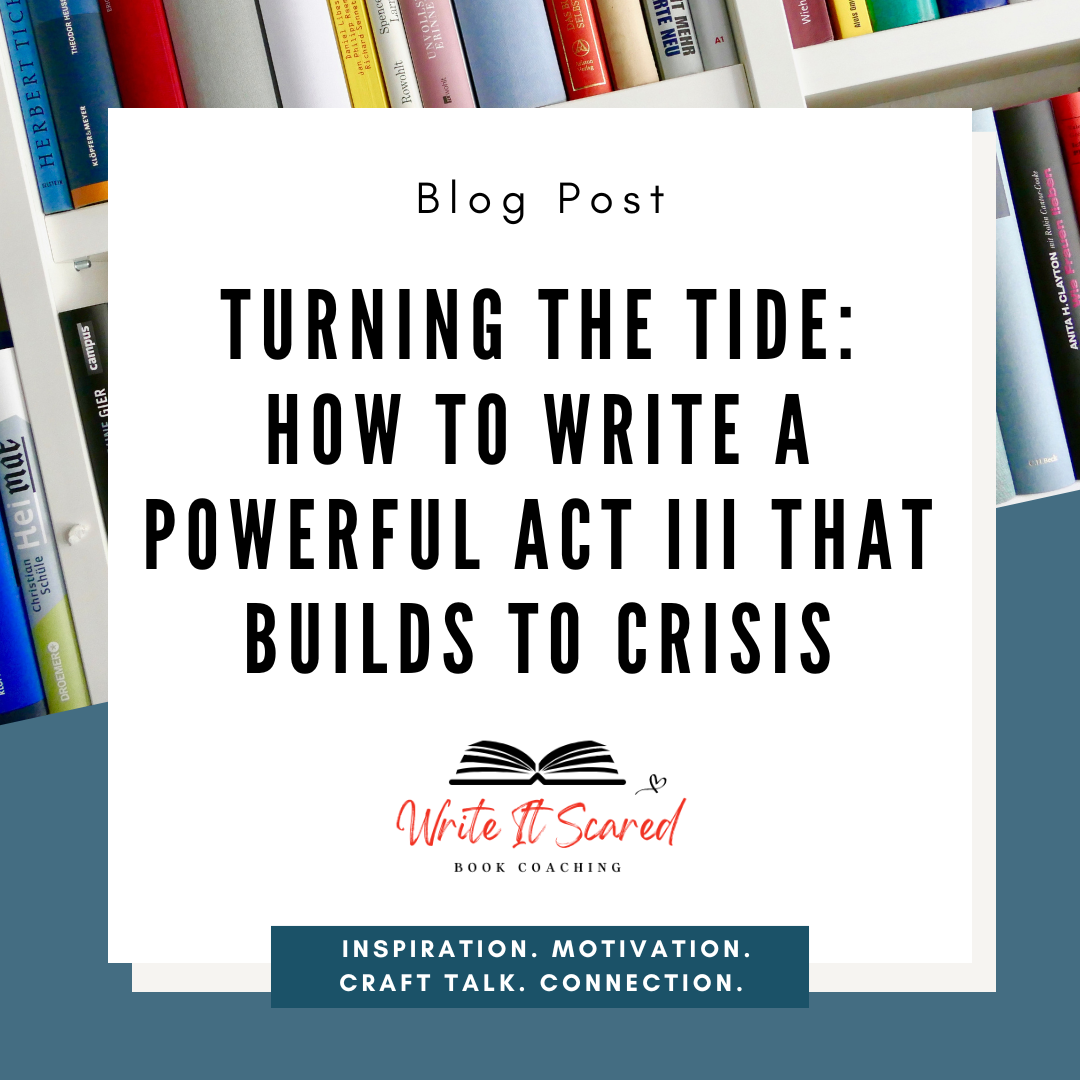
The Write It Scared Podcast is Back for Season 3
If you’ve been missing The Write It Scared podcast and need a little help with story development or your mindset…I’ve got you, writer! I’m sharing all the details for season 3, as well as the top five episodes on story development and mindset!

An Honest Story About a Writer Accomplishing Goals Inch by Inch
Ready or not, 2025 is knocking. I’m not sure if I want to answer, but of course, like you, I will, and I want to go forward with a plan. If you like a plan and want a little help creating one for the coming year, here’s a goal-setting exercise you can use to set intentions and mile markers for 2025.

It’s Never Too Late to Start Writing Your Novel: Tips on Mindset and Story Development From Two Certified Book Coaches
Do you ever feel like it’s too late?
Think that maybe you missed the boat heading toward your writing dreams?
Maybe you should have started in your teens, twenties, thirties, fifties, or some other decade before where you are now.
If you said yes to any of that, then episode twelve of the Write It Scared Podcast is where I will prove you wrong. Well, me and my guest, award-winning YA Fantasy Author and Certified Book Coach, Cassie Newell.

How to Use Genre To Structure Your Novel
The writing industry puts a lot of focus on the importance of a writer identifying their genre once the book has been written to determine where it will fit in the marketplace, but minimal emphasis on identifying genre before you begin to write it.
This is a problem because a book’s genre is much more than which shelf it sits on in a bookstore.

Should You Write a Scene or Summary - A Guide for Fiction Writers
All novels are built from a combination of scene and narrative summary. The balance is the author's choice, but the more we know each component, the better decisions we can make about structuring our story to produce a book others will enjoy.
In this blog post, we'll break down the distinction between scene and summary, see how they are often blended, and examine the rarely discussed middle ground: the half-scene.

Turning the Tide: How to Write a Powerful Act III That Builds to Crisis
I like to think of Act III in the Four-Act story structure (from the midpoint to the all is lost) as the time when shit gets real and stays real, and the hero fights with proactive energy and new information.
Things that occur:
Progressive complications and higher stakes. After all, there is no turning back for the main character.
The second pinch point, where the antagonist gives the main character a smack down and foreshadows the All is Lost Moment (the Third Plot Point in a three-act structure) and the story’s climax.
All is Lost: represents the Moment in the story where all hope is lost in the main character reaching the external story goal.
